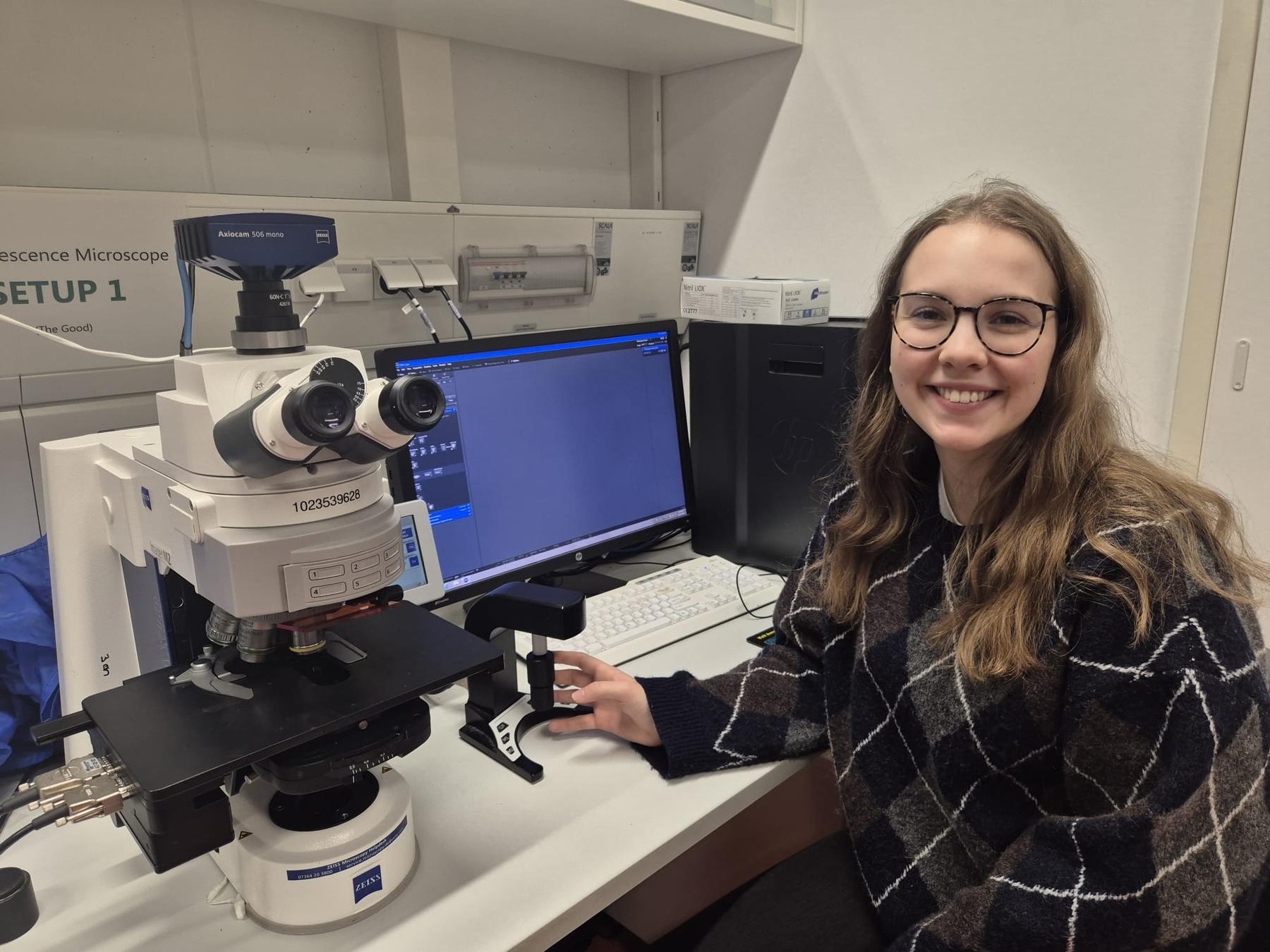When Jantje received an email from Jugend forscht about internship possibilities at SyNergy, she knew right away she had to apply: “The opportunity suited me perfectly, I have always been fascinated by neuroscience: the brain and spine control our life, they control how we function, think, feel,” she said. When asked about her expectations, she mentions she went in with an open mind: “However, I have actually worked in a lab before. At Leibniz University, I worked with cell cultures. So, I knew a little bit about what to expect; nonetheless, I didn't want to be biased or set any expectations.”
During her internship, she concentrated on reprogramming astrocytes into neurons using both mouse and human models. Each day brought new experiences, even though she followed a clear schedule for attending to her cells. She also worked on a presentation about her experiences for her peers back home. Additionally, she attended a course designed for Master’s students offered by our Graduate School of Systemic Neurosciences. "The first week was challenging," she reflected. "There was a lot of new jargon, and of course, the students were all much more advanced in their studies than I was as a high school student. However, I was proud to realize that by the last week of the course, I could understand quite a bit of the material."
Jantje especially enjoyed being part of the lab team. “Everyone was so incredibly nice to me. I was able to join lab meetings where students presented the progress on their PhD projects. It was fascinating to get insights into their research projects.” Her internship supervisor was Oleksandra Pavlovska, a PhD student: “Supervising Jantje was a very inspiring experience for me. After working on a project for a longer time, one tends to get used to the data we get. However, seeing the results of an experiment through the eyes of a student new to the field reminded me of the excitement of the work we do in the lab. Jantje showed high curiosity and enthusiasm for scientific research but also appreciation for beauty and aesthetical value of the performed experiments. For example, the immunocytochemical staining of the cells undergoing reprogramming, in my opinion, can be extremely beautiful. Being there with her, when Jantje saw the images for the first time was highly valuable for me.”
After being away for a month, she especially looked forward to seeing her dog again. “Overall, I am really satisfied with the internship. It was simply so much fun, the feeling is indescribable.”
About Jugend forscht
Jugend forscht is Germany's best-known competition for young scientists. It encourages and supports talented achievers in the areas of science, technology, engineering, and mathematics (STEM). It seeks to inspire young people to become involved long-term and, after the contest, to help them with their careers. Students from the 4th grade up to the age of 21 can participate. More information: www.jugend-forscht.de.

